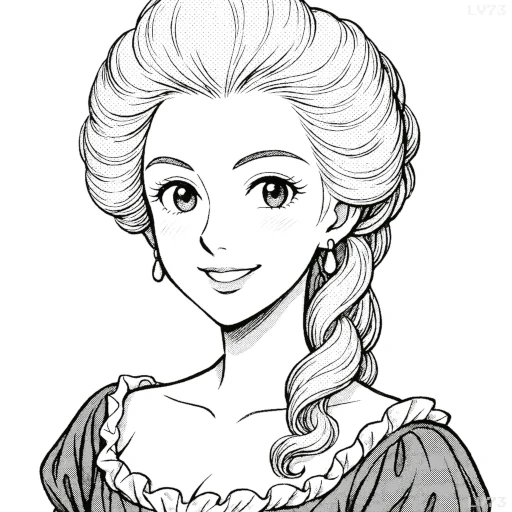“We made our entrance into Paris. As for honors, we received all that we could possibly imagine; but they, though very well in their way, were not what touched me most. What was really affecting was the tenderness and earnestness of the poor people, who, in spite of the taxes with which they are overwhelmed, were transported with joy at seeing us.”

- November 2, 1755 – October 16, 1793
- From the Duchy of Austria, Holy Roman Empire
- Queen
table of contents
Quote
“We made our entrance into Paris. As for honors, we received all that we could possibly imagine; but they, though very well in their way, were not what touched me most. What was really affecting was the tenderness and earnestness of the poor people, who, in spite of the taxes with which they are overwhelmed, were transported with joy at seeing us.”
Explanation
In this quote, Marie Antoinette reflects on her entry into Paris, where she and the royal family were greeted with grand honors and celebrations. While she acknowledges the spectacle of the event, her true emotional reaction is not to the formal accolades but to the genuine warmth and joy expressed by the common people of Paris. Despite the harsh economic realities they faced—particularly the crushing taxes imposed on them—she was deeply moved by their tenderness and the earnestness of their feelings, suggesting a strong sense of empathy for the struggles of the French populace. This moment speaks to the disconnection between the grandeur of royal life and the real-life hardships experienced by ordinary citizens, yet it shows how human connection and shared emotion can transcend social and economic divides.
Historically, this quote highlights Marie Antoinette’s complex relationship with the French people. While she was often vilified as a foreign queen who was disconnected from the struggles of her subjects, this moment reveals her awareness of their suffering and the genuine impact their affection had on her. The people’s joy, even in the face of immense hardship, likely served as both a source of comfort and a reminder of her responsibilities as queen, even as political tensions were mounting. This empathy also contrasts with the image of the royal family that would later be depicted as out of touch by the revolutionaries, who would use such contrasts to fuel their revolutionary fervor.
In modern terms, this quote resonates with the idea of public perception versus personal emotion, especially for those in positions of power. It speaks to the tension between formal honors and authentic human connection, where true emotional reactions often arise from interactions with the people rather than the systems or titles surrounding a leader. It can also be seen as a reflection of leadership responsibility: while ceremonial gestures might serve to uphold one’s public image, it is the genuine bonds with the people that can leave a lasting impact and offer meaningful moments of connection, even amidst difficult circumstances.
Would you like to share your impressions or related stories about this quote in the comments section?

